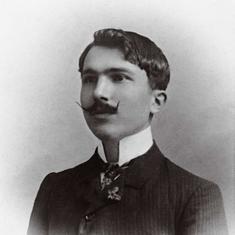Mahesh Bhatt can never really retire. The director has re-invented himself several times in recent years as a writer, producer, Twitter activist, and lately, a television show host.
Bhatt is currently hosting Khwabon Ka Safar for the Epic Channel. The show documents independently owned film studios such as RK Studios, Rajkamal Kalamandir, Prabhat and Bombay Talkies. Khawabon Ka Safar airs once a week, on Mondays at 10pm slot, and features Bhatt speaking paying tribute to the giants of Indian cinema. The show intersperses clips from the filmmaker’s body of work with on-location photographs and nuggets from movie journalists and historians.
The first episode revisits Raj Kapoor’s dream of setting up RK Studios in Chembur, a northeastern suburb in Mumbai, in 1948. The episode contains several interesting details about Kapoor’s fascination with the medium, from his love for direction to creating the studio’s iconic banner.
When films are spoken of, can numbers be left to trade analysts alone? Barsaat, made in 1949, was a massive hit earning Rs 1.1 crores, which would amount to Rs 312 crores today, Bhatt claims. That is more than the earnings of Bajrangi Bhaijaan.
The second episode on Bombay Talkies reveals how the studio was a launch pad of over 280 legends, including Devika Rani, Ashok Kumar, Dilip Kumar, Madhubala, Lata Mangeshkar, Kishore Kumar and Mehmood. Over a span of 20 years, Bombay Talkies successfully produced 102 films. Kismet, made in 1943, was its biggest success, running for over three years at the Roxy cinema in Kolkata.
For the episode on the life of V Shantaram, the channel interviewed his son Kiran Shantaram, who shares an interesting anecdote on how the studio Rajkamal got its name - Shantaram coined it by combining the names of his parents - father Rajaram and mother Kamal. It is precisely this sort of information that got attached Bhatt to the show.
According to a press release, Bhatt says he was drawn to the idea of the show because of his ignorance of the roots of Indian cinema. "When I heard the whole idea and the kind of narratives that have been fashioned, I was humbled by the idea that I had to come face to face with my own ignorance," Bhatt said. "I did not know that the great Indian filmmaker V Shantaram made a living by giving out lamps at theatres while the artists performed and it was there where Shantaram ji first learnt what drama was all about."










